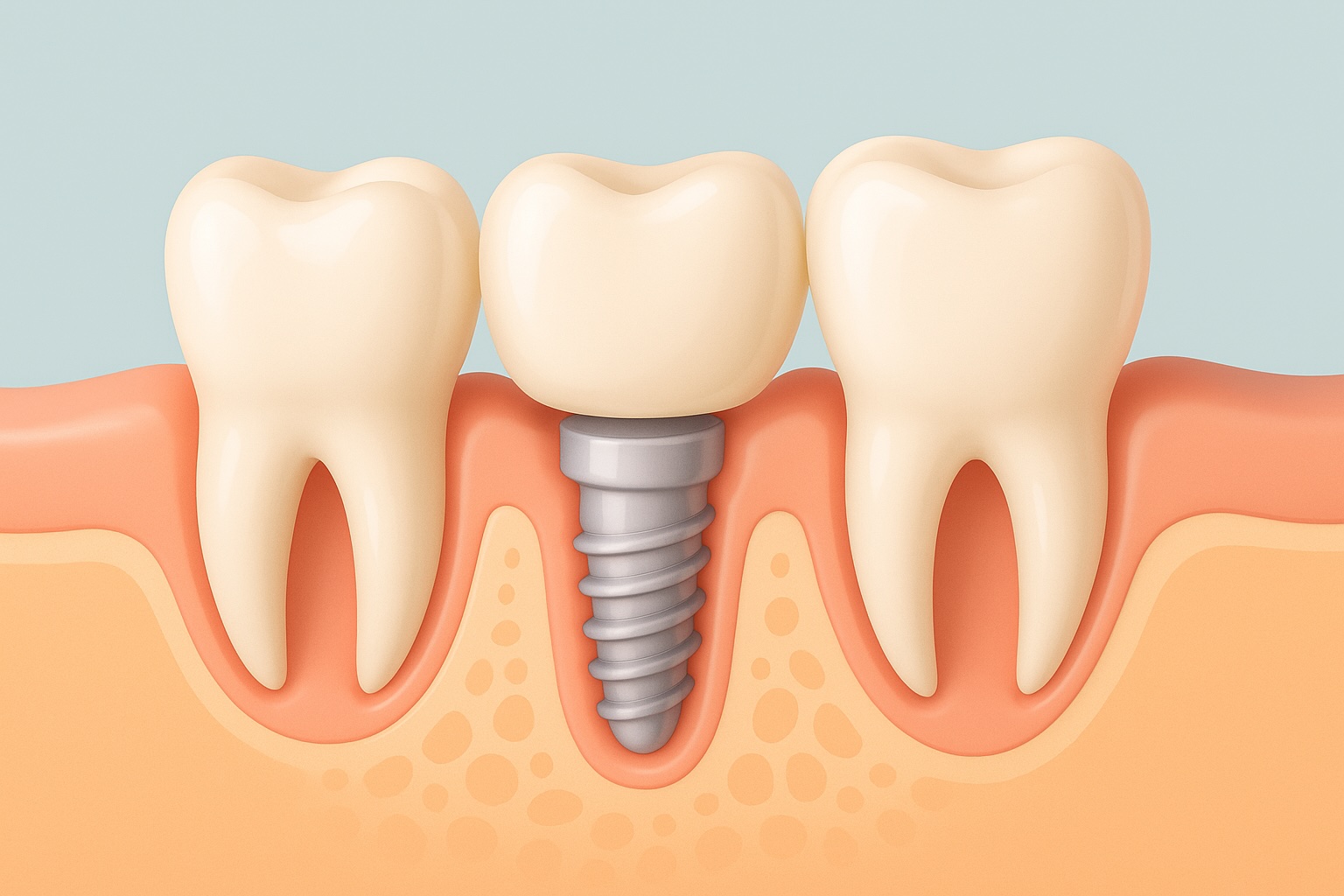Why Replacing Missing Teeth Quickly Matters for Your Oral Health
Losing a tooth affects more than your smile. Here’s how timing influences bite stability, jawbone health, and long‑term function—plus the modern options available to restore your teeth.
What happens when a tooth is missing?
A missing tooth leaves more than a gap—it changes how your mouth functions. Neighboring teeth naturally drift toward the space, which can:
- Alter your bite (occlusion) and make chewing less efficient,
- Create hard‑to‑clean areas that trap food and bacteria, increasing cavity and gum disease risk,
- Place uneven stress on remaining teeth, accelerating wear, cracks, or fractures.
Jawbone health & facial structure
Tooth roots stimulate the jawbone. When a tooth is lost, the bone beneath it begins to shrink—a process called bone resorption. Over time, this can subtly change facial contours and complicate future treatment. Preserving bone early often means simpler, longer‑lasting results.
Impact on daily life
Many people adapt to a missing tooth without realizing it—chewing on one side, avoiding certain foods, or noticing slight changes in speech. Replacing the tooth can restore comfort, clarity, and confidence in everyday conversations and meals.
Tooth replacement options
Modern dentistry offers several reliable ways to restore function and appearance:
- Dental bridges – Anchored to neighboring teeth to fill the space with a lifelike replacement tooth. Great for single‑tooth gaps when adjacent teeth are strong.
- Implant restorations – Replace the missing root and crown for a natural look and feel while helping preserve bone in the area.
- Dentures (partial or full) – A cost‑effective way to restore multiple missing teeth and balance your bite.
- Dental crowns – Protect and strengthen a damaged tooth, or complete an implant after healing for long‑term durability.
The best option depends on your oral health, goals, and budget. A short consultation helps determine what will serve you best now and in the long term.
Why timing matters
- Alignment: Early replacement helps keep teeth from shifting out of position.
- Bone preservation: The sooner a space is restored, the better your chance of maintaining bone volume.
- Fewer add‑ons: Delays can lead to extra procedures later (e.g., bone grafting) before a restoration is possible.
- Simpler care: Acting early often means a more straightforward, cost‑effective plan.
When to call a dentist
Reach out if you notice any of the following after losing a tooth:
- New or widening gaps between teeth,
- Soreness when chewing or new bite interferences,
- Food trapping where the tooth is missing,
- Changes in speech or confidence when smiling.
If your tooth was lost due to an accident or sudden pain, see our
same‑day emergency dental care information for timely guidance.
Have questions about replacing a missing tooth?
Pier Dental in St. Pete Beach provides personalized recommendations—from
bridges and
implant restorations to
dentures and
crowns—so you can choose what fits your needs and lifestyle.
Call (727) 363‑6169 or visit
pierdental.net to schedule a consultation.








